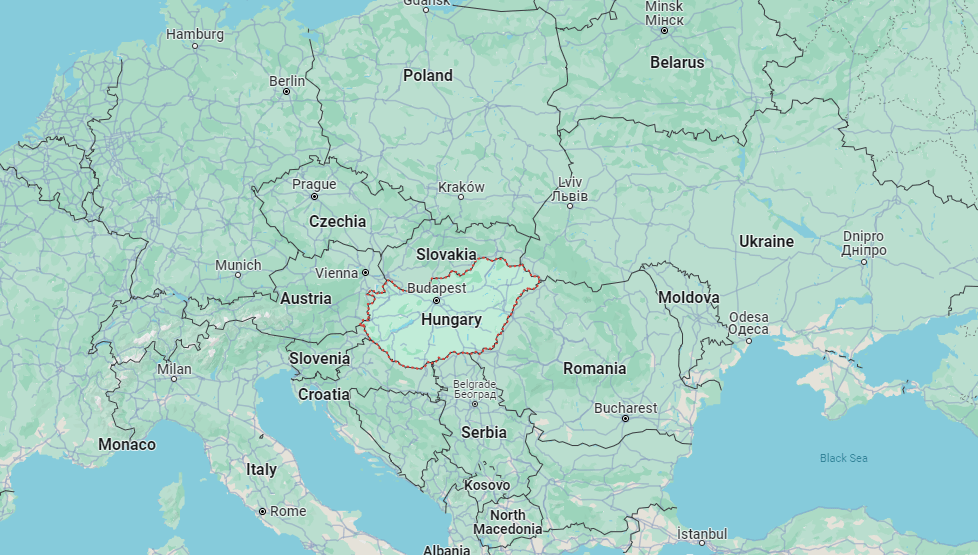Despite Hungary’s population less than 10 million and a land area of 93,000 square kilometers, Hungary has managed to attract a significant amount of investment from top China battery manufacturers.
“Hungary on the Way to Become the Second Largest Producer of Electric Batteries” This statement was made by Péter Szijjártó, Hungary’s Minister of Foreign Affairs and Trade, at the World Power Battery Conference held in Yibin, Sichuan in 2023.
Hungary has managed to attract a significant amount of investment from leading solar battery manufacturers, indicating its growing importance in the solar battery industry.

E.G. Top China solar battery manufacturers invested in Hungary
EVE Battery
March 2022, EVE Energy announced an investment to build a factory in Debrecen, Hungary. The project covers an area of 675 acres and plans to have an annual production capacity of 30 GWh, focusing on producing new cylindrical power batteries.
CATL Battery
October 2023, CATL (Contemporary Amperex Technology Co. Limited) began construction on the first phase of its new energy battery industrial base in Debrecen, Hungary. The total investment for the project is 7.34 billion euros, with a planned annual production capacity of 100 GWh.
It is expected to commence production in 2025 and will become the largest electric vehicle battery factory in Europe at that time.
Sunwoda Battery
July 2023, Sunwoda Battery announced plans to construct a power battery factory in Hungary. The initial investment for the first phase of the project will not exceed 1.96 billion RMB, mainly used for land acquisition, factory construction, and equipment procurement.
BYD Battery
January 2024, BYD signed a land pre-purchase agreement with Hungary to build its first European new energy passenger car factory in the southern city of Szeged, scheduled to commence production by the end of 2025.
why have Chinese manufacturers chosen Hungary for their overseas investments?
1, Geographical Advantage
Firstly, Hungary enjoys a unique geographical advantage. Located in the heart of Europe and bordered by seven countries, it serves as a crossroads connecting Western, Eastern, Northern, and Southern Europe.
Additionally, Hungary has a strong automotive industry base, attracting numerous domestic and international automotive manufacturers and suppliers.
Raw materials, separators, and other auxiliary materials used in the production of lithium batteries can be easily sourced from nearby regions.
2, A friendly way to the market of EU
Secondly, establishing factories in Hungary is a friendly way with whole EU market.
For instance, regulations such as the “Battery and Battery Waste Regulations” and the “Critical Raw Materials Act” require that by 2030, at least 10% of critical raw materials must be domestically mined, at least 40% must undergo domestic processing, and at least 15% must be locally recycled. This underscores the necessity of setting up factories in Hungary.
3, Strong support of Hungary policy
Thirdly, Hungary maintains friendly relations with China in terms of policies. In 2015, Hungary became the first European country to join the Belt and Road Initiative. The local government offers generous subsidies and has established special funds to support technological innovation and new product development in the battery industry.
China battery companies enjoy exemptions from corporate income tax, value-added tax, and tariffs. Additionally, they can benefit from low-cost land leases or even free land usage rights.
The Hungarian government has pledged approximately €800 million in tax incentives and infrastructure support to Ningde Times’ new energy battery industrial base in Debrecen.
The future of solar lithium battery in Europe
As for the arrival of global lithium battery manufacturers, the local lithium battery industry chain in Hungary continues to improve. This not only attracts various manufacturers from upstream to downstream supply chains but also cultivates a large number of skilled workers and technical talents in the solar battery industry.
Furthermore, there is a high compatibility between the production lines for power batteries and energy storage batteries. With over 50% overlap between the two types of battery cells, transitioning from producing power batteries to energy storage batteries is not difficult. Consequently, Hungary indirectly obtains a solid foundation for producing high-quality and comprehensive energy storage battery cells.
Europe, as one of the world’s major solar energy storage markets, has been the preferred destination for domestic energy storage companies to expand overseas in recent years. Data shows that in 2023, the total installed capacity of energy storage systems in Europe reached approximately 10.1 GW, with 7.3 GW installed in industrial and commercial energy storage and residential energy storage systems.
